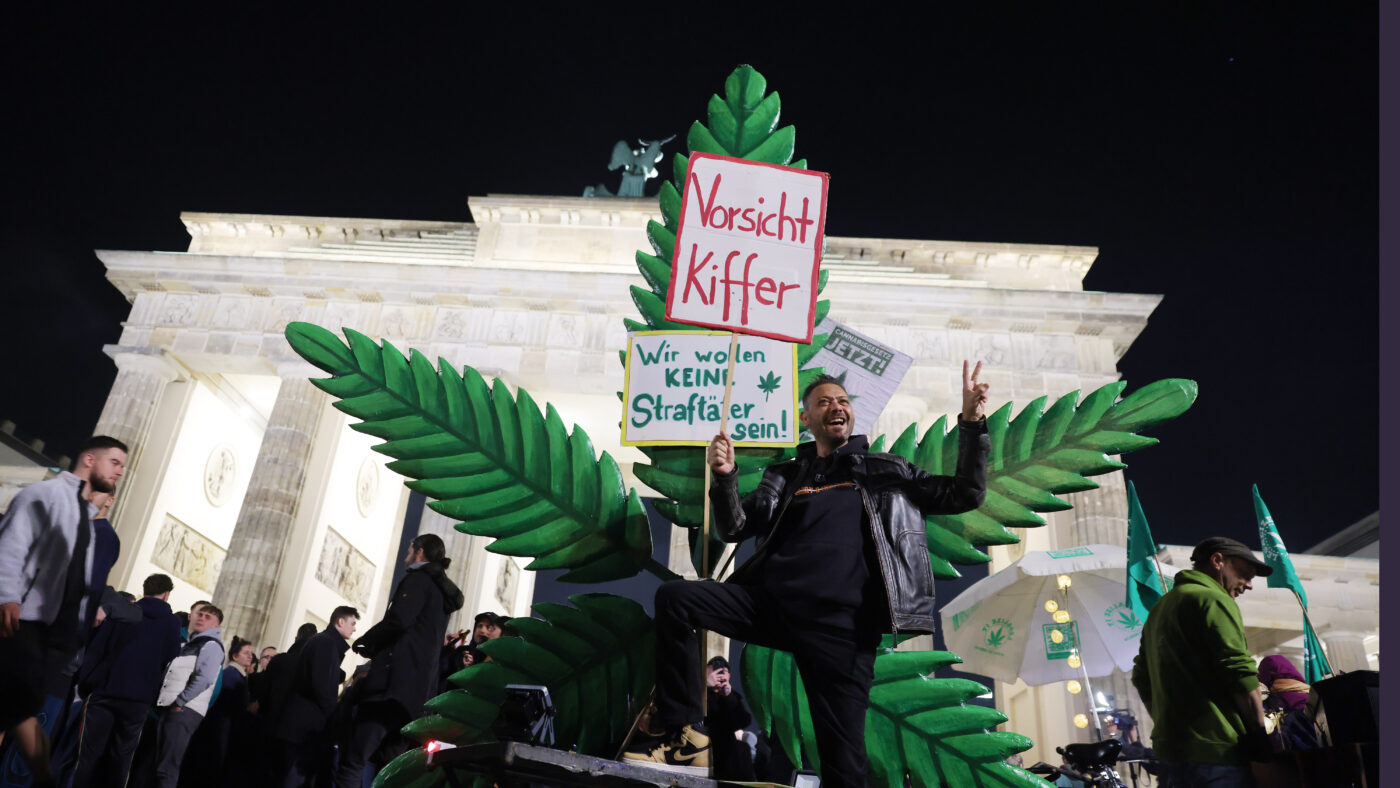Germany marked April Fool’s Day this year with the implementation of its long-awaited legalisation of recreational cannabis. It becomes the 9th country (plus 28 US states and territories, and one Australian territory) to legalise recreational use and it’s one of at least 30 countries to have decriminalised personal use of the devil’s lettuce.
If you told pro-legalisation campaigners a decade ago about these results, their response would probably have been tinged with disappointment. After Colorado became the first U.S. state to legalise marijuana in 2012 and Uruguay followed as the first country to do so in 2013, it seemed as though the campaign to end prohibition was finally turning the tide.
But that hasn’t quite played out. A series of botched implementations has set back the drug legalisation cause for decades. In Canada, for example, legalisation failed to kill the illicit trade, one of the key selling points for legalisation. As of 2022, their Government estimates that illegal producers still control 33% of the market.
Oregon’s failed experiment with decriminalisation of all drugs, San Francisco’s drug and crime epidemic, and a slight uptick in drug harms in Portugal (the poster child for decriminalisation) also struck blows.
Some of these failures have helped to rejuvenate the Right’s prohibitionist zeal. Peter Hitchens continues to propagate his absurd claim that marijuana is ‘one of the most dangerous drugs known to man’. The UK’s Conservative Government seems intent on opening new fronts of the war on drugs with its bans on Nitrous Oxide, tobacco, and disposable vapes. And countries like the Netherlands and Norway are rowing back their steps towards liberalisation.
We must, of course, learn the lessons from other countries’ struggles. But they do not undermine the case for liberalising our approach to drugs. Prohibition remains an immoral and failed approach to tackling drug harms.
To return to Canada, its failures were of the state’s own making. The centre-left policymakers in charge of the country rightly pointed out that prohibition was a boon for criminals, but conveniently forgot that high excise taxes and stringent regulations can have the very same effect. When legal products were brought to market in 2019, they were being offered at twice the price of illegal products. THC limits and the continued ban on many edible products was also a boon for the criminal underworld.
In Portugal, a spike in drug use in early 2023 prompted articles questioning whether its 2001 decriminalisation of small quantities of narcotics was a mistake. Despite that uptick, Portugal’s drug overdose and HIV transmission rates remain among the lowest in Europe and well below where they were during the addiction crisis in the late 1990s, which preceded decriminalisation. Indeed, the rise in drug use was part of a predictable global trend in the aftermath of the Covid pandemic, which also manifested in rising marijuana use in Canada.
Crucially, the Portuguese approach is part of a broader program dedicated to reducing drug harms. Unlike the antinomian decriminalisation policies seen in drug-riddled American cities, Portugal still uses its police force to break up open air drug markets and crack down on drug-related crimes. This helps to limit the negative social effects which can spill over as a consequence of legalisation.
These contrasting experiences strengthen the case for drug decriminalisation. Ending enforcement against users and, at the very least, low-level suppliers can free up police resources to tackle genuine crimes – those which actually have victims. When Britain’s prisons are full and the sense of lawlessness is growing, refocusing police attention on violent crime is exactly what’s needed (incidentally, the same goes for resources spent policing peoples’ speech).
Crucially, the moral case for legalising drugs remains as strong as ever. Selling and consuming drugs is a victimless crime. One does not have to be an acid house enthusiast to state that fact. It is fundamentally immoral to send armed agents of the state to put someone in a cage for an act which does not infringe on the rights of others. To coin a phrase from the American left, my body, my choice. That case is even stronger for cannabis, which has never even been directly associated with a fatality.
Finally, the flawed efforts at drug legalisation cannot automatically make the case for prohibition. Prohibition can only work for a short period of time if governments and citizens are willing to tolerate drastic and routine infringements on civil liberties. In free societies where such restrictions are rarely tolerated for long periods, it can never succeed. The record of prohibition remains one of high drug harms, countless lives unnecessarily ruined by the state, and the strengthening of criminal gangs.
So, here’s to Germany. Their policymakers are getting very little right at the moment, but they have closed one of the ugliest chapters of the war on drugs and allowed their citizens to smoke up in peace. In our increasingly illiberal political climate, that’s something to celebrate.
Click here to subscribe to our daily briefing – the best pieces from CapX and across the web.
CapX depends on the generosity of its readers. If you value what we do, please consider making a donation.


